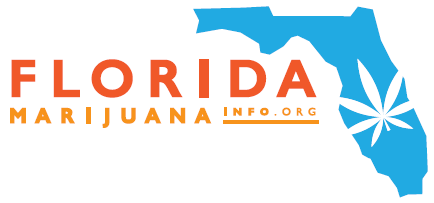US Representative Scott Perry’s (R-PA 4) newly introduced HR 5226, the Charlotte’s Web Medical Hemp Act of 2014, only has a 3% chance of passing according to the website GovTrack.us. GovTrack is a non-partisan website that tracks government legislation and transparency. The Charlotte’s Web bill would legalize low-THC cannabis and cannabidiol (CBD), by exempting CBD and medical hemp with a THC content of 0.3% or less from the definition of “marihuana” in the Controlled Substances Act. If enacted, this legislation could allow Florida, and the 10 other states, which have passed low-THC medical cannabis legislation, to implement their low-THC medical cannabis programs. Unlike states with broader medical cannabis programs, states which have passed low-THC medical cannabis laws have yet to begin to start implementing their programs and providing patients with medicine, and because of the wording of legislation and conflicting federal law, these programs may never be implemented without federal legislation like the Charlotte’s Web Medical Hemp Act, or broader state medical cannabis legislation, being passed.
Freshman Congressman from PA Fights to Exempt Medical Hemp from Controlled Substances Act Rep. Perry, a freshman congressman representing York County and Adams County, Pennsylvania, remains optimistic, believing his medical hemp bill could pass the House of Representatives before the end of the year. So far the bill has 10 bipartisan co-sponsors. Several fellow Republicans have co-sponsored HR 5226, including libertarian Republicans such as Rep. Justin Amash (R-MI 3), who was re-elected to his seat this week, Rep. Paul Broun (R-GA 10), and Rep. Thomas Massie (R-KY 4). While Rep. Perry hails from Pennsylvania, where the state’s General Assembly is currently considering about half a dozen cannabis reform bills, and Gov. Tom Corbett has come out in support of a CBD pilot program, but no medical legislation or research program has yet to be enacted.
Representatives from Industrial Hemp and Medical Cannabis States Co-Sponsor Bill
All of the co-sponsors of the Charlotte’s Web Medical Hemp Act are from states that have either passed low-THC or CBD oil medical cannabis legislation or broader medical cannabis laws, some have also legalized industrial hemp, and in the case of Colorado, full legalization of cannabis. Rep. Thomas Massie of Kentucky is among the co-sponsors from states, which will benefit from the Charlotte’s Web Medical Hemp Act. In April of this year, Kentucky enacted SB 124, a CBD oil bill, and prior to that had already enacted legislation that legalized industrial hemp cultivation. Earlier this year Rep. Massie introduced the industrial hemp amendment to the Farm Bill, which recently passed and was signed into law by President Obama. Kentucky’s industrial hemp program is already under way. Co-sponsors Rep. David Scott (D-GA 13) and Rep. Paul Broun (R-GA 10), both from Georgia, whose state legislature passed HB 885, the Haleigh’s Hope Act, which would have legalized low-THC medical cannabis and continued the state’s Therapeutic Research Program established in the 1980s, though the bill passed both chambers, the state Senate’s amended version did not pass the state House before the legislative session ended. Rep. Steve Cohen (D-TN 9) is a co-sponsor whose state passed legislation that legalized the cultivation of industrial hemp, SB 2495 and HB 2445, and was signed into law on May 14th, and two days later low-THC medical cannabis legislation, HB 2461 and SB 2531, was signed into law by the Governor of Tennessee on May 16th.
Other co-sponsors are representatives of states which have legalized broader medical cannabis programs, such as Rep. Dana Rohrbacher (R-CA 48), who has also introduced legislation that passed the House which would defund DEA raids and protect doctors, patients, and dispensaries in medical cannabis states, it now must pass in the Senate. California was the first state to pass a broad medical cannabis program, when voters approved Proposition 216 in 1996, and in 1999 passed HR 32, which called for research to be done on industrial hemp and calling for the legislature to consider taking further action to change the legal status of hemp. Rep. Justin Amash comes from Michigan, which legalized medical cannabis when voters approved Medical Marijuana Initiative, Proposal 1 in 2008. Rep. Tulsi Gabbard (D-HI 2), is a co-sponsor of the bill from the State of Hawaii, which in June of 2000 became the first state to legalize medical cannabis through their state legislature and not through a ballot initiative. This year Hawaii passed SB 2175, which created a 2 year industrial hemp pilot project at the University of Hawaii at Manoa. Rep. Earl Blumenauer (D-OR 3) represents Oregon, which legalized medical cannabis when voters approved Ballot Measure 67 in 1998, and in 2009 the state passed SB 676, which legalized industrial hemp. Rep. Rodney Davis (R-IL 13) is a co-sponsor representing the State of Illinois, where Gov. Pat Quinn signed his state’s medical cannabis bill into law in August of 2013. Rep. Ed Perlmutter (D-CO 7) is a co-sponsor from Colorado, where voters approved ballot initiatives that legalized medical cannabis in 2000, and legalized recreational cannabis and industrial hemp in 2012.
GovTrack Says Bill Has Little Chance of Passing Committees, and a Senate Companion Bill
GovTrack.us gives the bill an 8% chance of passing the House Energy & Commerce Committee and the House Judiciary Committee. According to Rep. Perry one US Senator has plans to introduce companion legislation in the Senate. Senators from Pennsylvania are also interested in the legislation. “Anytime the federal government can take an action that has the potential to improve the treatment of sick children, such a proposal should be given thoughtful consideration. The health and safety of Pennsylvanians is my highest priority.” John Rizzo, Communications Director for Sen. Bob Casey (D-PA), said in a statement e-mailed to the Evening Sun. Sen. Pat Toomey’s (R-PA) Press Secretary, Steven Kelly, has said that Sen. Toomey and his are also reviewing Rep. Perry’s legislation. According to the Evening Sun, Kelly said that Sen. Toomey appreciates Perry’s efforts regarding alternative approaches to medical cannabis.
Whether Congress acts or not Floridians may be able to open up access to medical cannabis if voters approve Amendment 2 in November. The FDA is already in talks with the State of Florida about clinical trials and research involving medical cannabis. In a statement made on the FDA’s website on June 20th, they said that they had, “talked to several states, including Florida, Georgia, Louisiana, New York and Pennsylvania, who are considering support for medical research of marijuana and its derivatives to ensure that their plans meet federal requirements and scientific standards.”













 OMD Agency
OMD Agency
Recent Comments